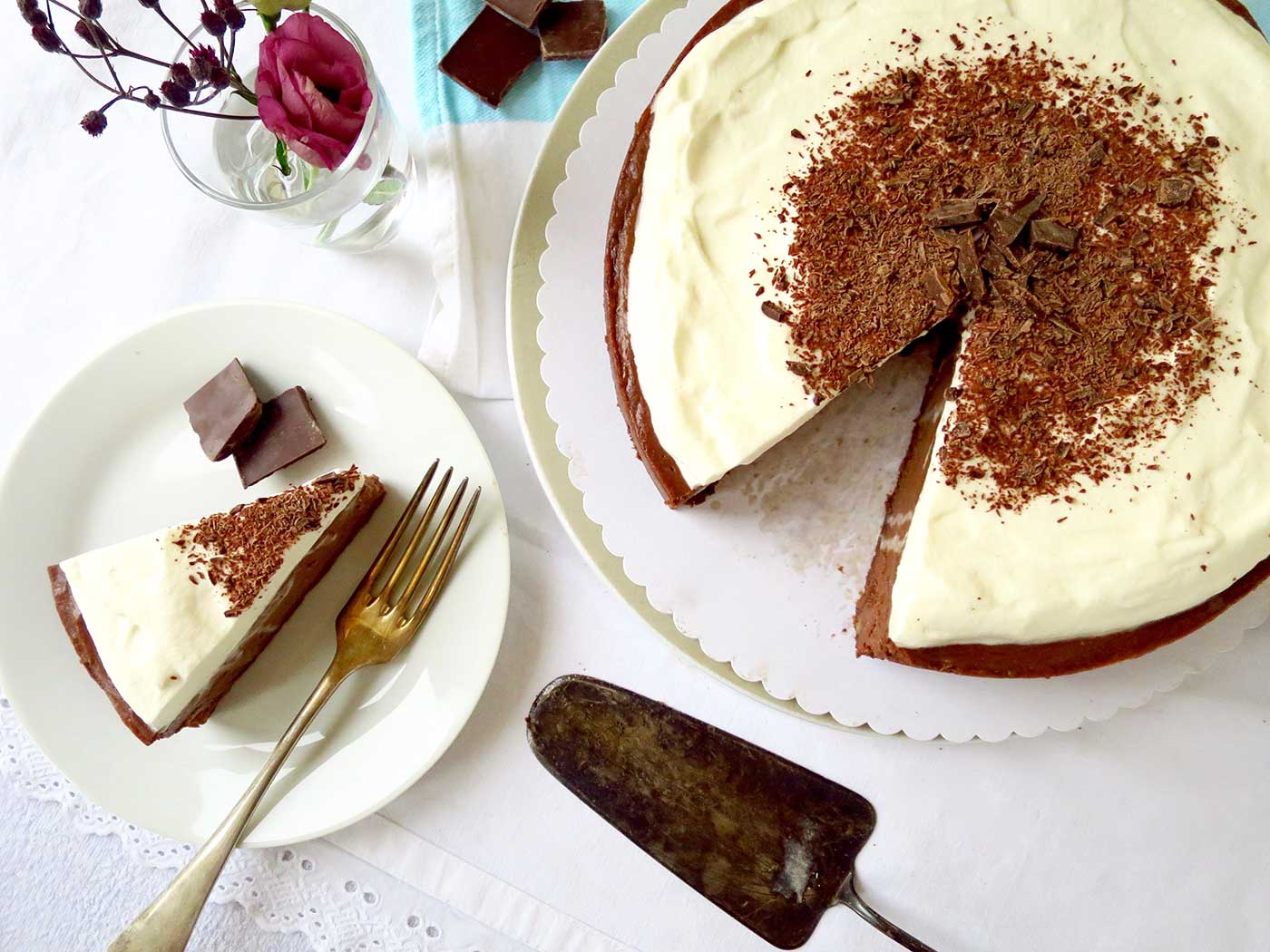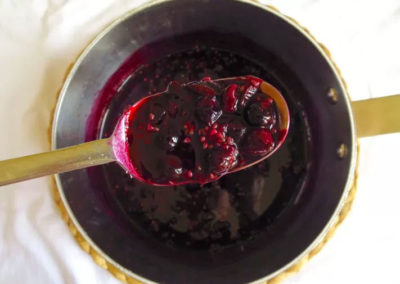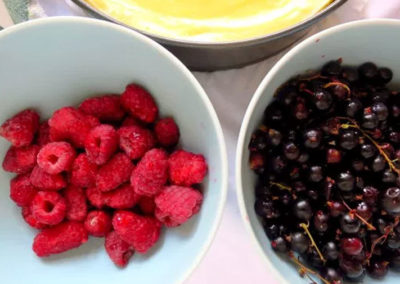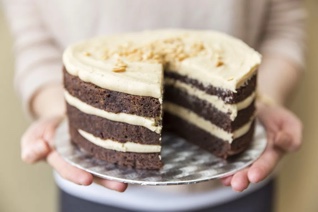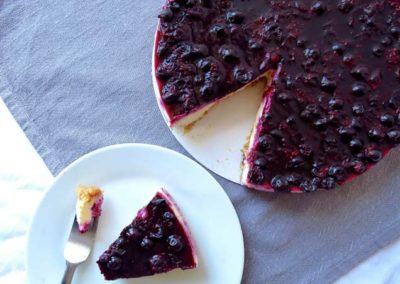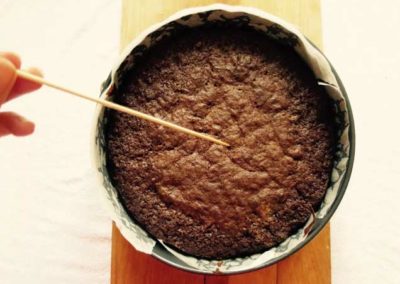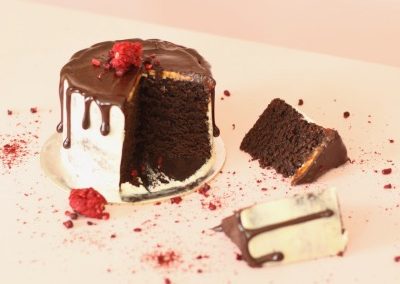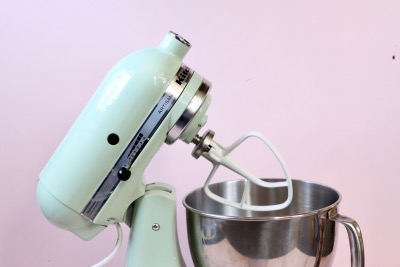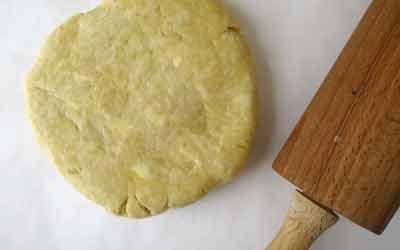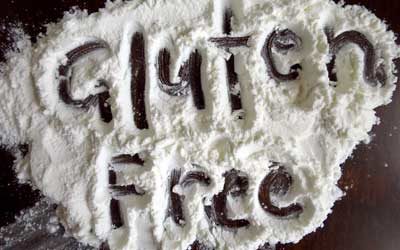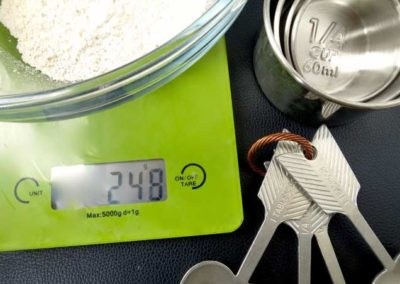
HOW TO: TIPS & TRICKS
A CRACK-FREE CHEESECAKE: 5 MUST KNOW TIPS!
Everything you need to know on how to make a crack-free cheesecake and how to fix a cracked cheesecake if it’s too late!

Why do Cheesecakes Crack?

Cheesecakes are sensitive things. They don’t like to be cooked for too long and they certainly do not like being moved quickly from one temperature to the other. If either of these things happen, the cheesecake is likely to retaliate and c r a c k.
Why is this?
Because overcooking and a sudden change in temperature can ‘shock’ the cheesecake. Overcooking in particular, causes the proteins in the cheesecake to shrink and dries the cake out, which leads to cracking.
How do we bake a crack-free cheesecake (why did my cheesecake crack)?!

These 5 baking secrets explain how:
- Mixing room temperature ingredients by hand. All ingredients should be at room temperature and should only be mixed together until they are just combined. Over-mixing the batter creates too much air which can lead to cracks as well as a sunken cheesecake (so, best to leave your mixer in the cupboard!).
- Creating moisture. This can be done by creating a water bath (placing the cheesecake in a large pan of water) or with my recipe all that is needed is two oven-proof ramekins filled with water in the oven next to the cheesecake.
- By baking at a low temperature (165C/330F) for a short time (30 minutes) then turning the oven off, with the door ajar and leaving the cheesecake to continue baking for an hour or so and then removing once it is cool.
- Leave the oven door shut throughout baking, which means no peaking. Opening the door creates a draft and changes the overall temperature of the oven which can lead to cracking.
- Under-bake (seemingly)! Unlike other cakes, cheesecakes are still super jiggly and appear to be uncooked when they’re ready. It feels wrong, but even though it is still jiggly, it will continue to cook and firm up once it sets.
What to do with a cracked cheesecake: 
“It’s too late! I already have a cracked cheesecake” 😱 If this is you, then don’t panic. Thankfully, a cracked cheesecake does not hinder the flavour of the cheesecake so it is still completely fine to eat.The only thing that might be affected is the texture (it might be slightly coarse or a tad on the dry side – for a cheesecake), but I can guarantee it will still be delicious.
There is only 1 very simple thing you have to do with your cracked (or sunken) cheesecake and that is: …cover it up with a topping!
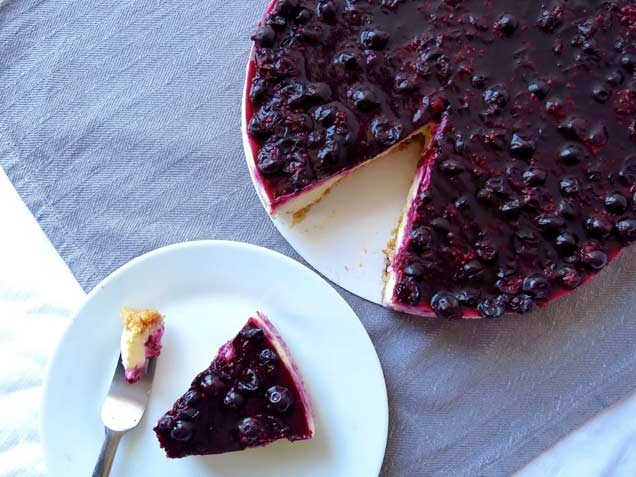
(Pictured above: easy lemon cheesecake with a berry-gelatin topping). No one will ever know the difference and the whole cheesecake will be devoured before you can even say “crack-free cheesecake”.
If you’re stuck for topping ideas, you could try:
- Fresh Fruit
- Whipped cream
- Chocolate Ganache
- Sour cream mixed with icing sugar and vanilla
- Jam
- Nutella
- Caramel sauce….this list could go on and on. Use what-ever you have on hand or fancy!
Pictured below is my chocolate velvet cheesecake topped with fresh whipped cream and chocolate shavings.
So, let’s recap:

For a crack-free cheesecake you must:
(1.) Make sure all of your ingredients are at room temperature, and
(2.) be careful not to over-mix.
(3.) Bake at a low heat with water present (e.g. water bath or ramekins filled with water) for a short time and
(4.) turn the oven off when it is still jiggly in the middle.
(5.) Leave cheesecake in the oven even after cooking time is up (so that you don’t ‘shock’ the cheesecake). Once cool, refrigerate for at least 4 hours before serving.
Top as desired!
So how do you feel about baking a crack-free cheesecake now? Pretty good I hope! Remember, practice makes perfect and sometimes no matter what, cheesecakes can crack even when you follow all the rules. The most important thing to remember is not to panic or be disheartened, as a cracked cheesecake can always be saved by a topping 🙂 If you are new to baking cheesecakes or would like an easy cheesecake recipe to bake, I suggest starting with my easy lemon cheesecake recipe – it’s a goody!

YOU MIGHT BE INTERESTED IN
![]()

